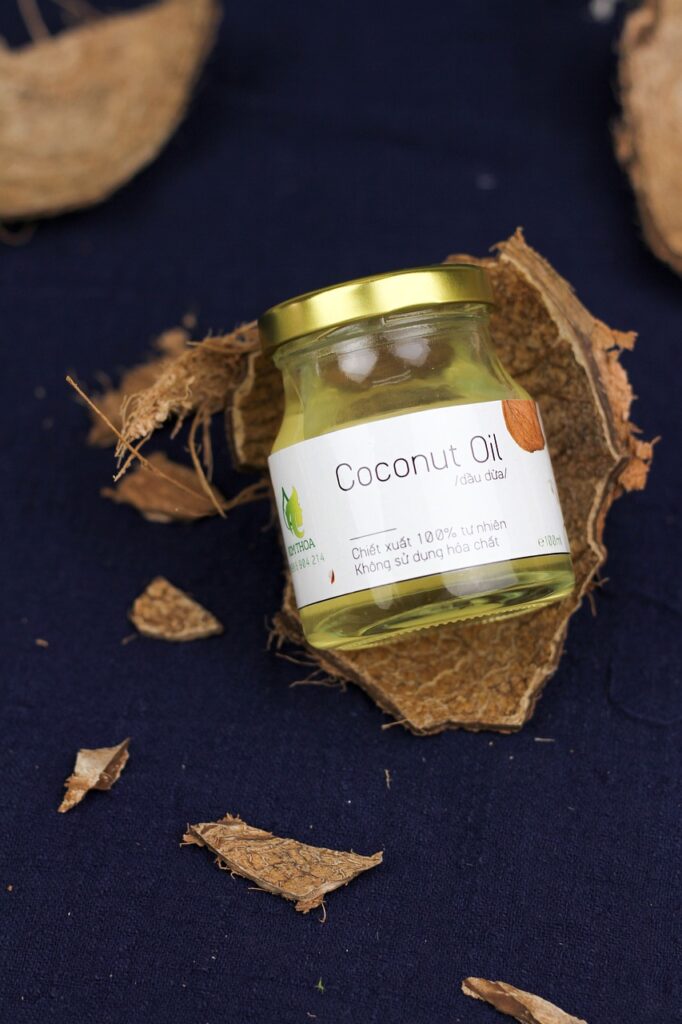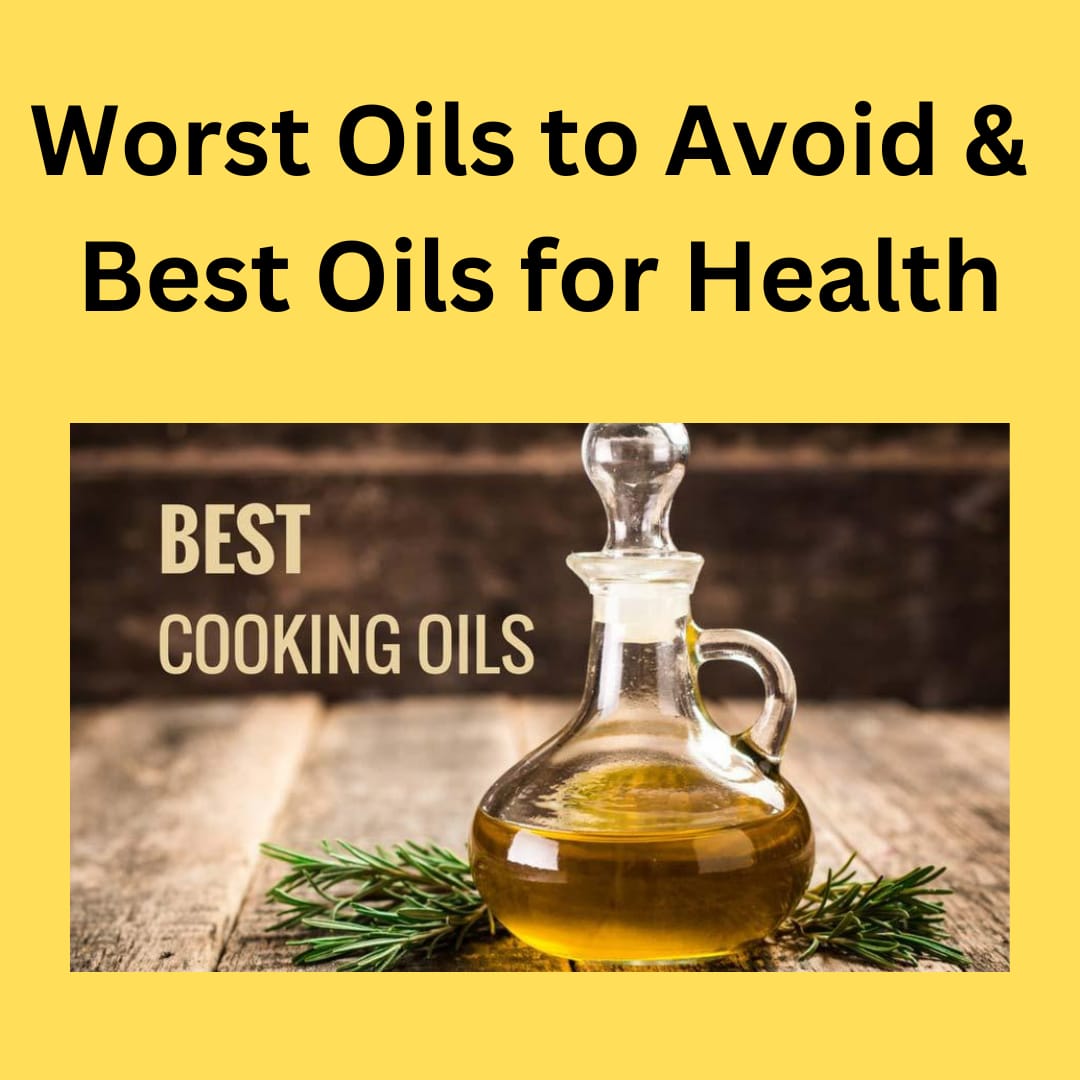The Ultimate Guide to Cooking Oils: Refined vs. Cold-Pressed & The Best Oils for Your Health
Cooking oils are a staple in every kitchen, but not all oils are created equal. The type of oil you use can impact your heart health, inflammation levels, and even the taste of your food. With so many options available, it’s crucial to understand the difference between refined and cold-pressed oils and which oils rank from worst to best for overall health.

Understanding Cooking Oils: Refined vs. Cold-Pressed
Refined Oils: What You Need to Know
Refined oils go through extensive processing that includes bleaching, deodorizing, and chemical extraction. This process strips the oil of its natural nutrients, antioxidants, and healthy fats, often replacing them with harmful trans fats and additives.
Common Types of Refined Oils:
- Vegetable oil (soybean, corn, canola, sunflower, safflower)
- Palm oil
- Cottonseed oil
Why Refined Oils are Bad for Health:
- High in omega-6 fatty acids, which promote inflammation
- Often contain trans fats, increasing heart disease risk
- Stripped of antioxidants and essential vitamins
- Processed with chemical solvents like hexane
Cold-Pressed Oils: The Healthier Alternative
Cold-pressed oils, also known as virgin or extra virgin oils, are extracted without heat or chemical solvents. This preserves their natural flavor, aroma, and health benefits.
Common Cold-Pressed Oils:
- Extra Virgin Olive Oil (EVOO)
- Coconut Oil
- Avocado Oil
- Sesame Oil
- Flaxseed Oil
Benefits of Cold-Pressed Oils:
- Rich in antioxidants and vitamins
- Contain healthy monounsaturated and polyunsaturated fats
- Support heart health and reduce inflammation
- Free from harmful chemicals and trans fats

Ranking Cooking Oils from Worst to Best for Health
Worst Oils for Health (Avoid These!)
- Vegetable Oils (Soybean, Corn, Canola, Sunflower, Safflower)
- Highly processed and refined
- High in omega-6 fatty acids, causing inflammation
- Often hydrogenated, leading to trans fats
- Palm Oil
- Contains saturated fat but lacks healthy polyphenols
- High environmental impact due to deforestation
- Often refined, leading to potential health risks
- Cottonseed Oil
- Often genetically modified and treated with pesticides
- High in inflammatory omega-6 fatty acids
- May contain toxic residues from processing
Moderately Healthy Oils (Use in Moderation)
- Rice Bran Oil
- Contains antioxidants like oryzanol
- Has a high smoke point (good for frying)
- Still refined, reducing nutrient content
- Peanut Oil
- High in monounsaturated fats, but also omega-6s
- Can withstand high heat but lacks antioxidants
- Not suitable for people with peanut allergies
- Sesame Oil (Refined)
- Contains some antioxidants but is often processed
- Moderate omega-6 content
- Best used in small amounts for flavor
Healthiest Oils (Best Choices for Cooking & Overall Health)
- Coconut Oil (Cold-Pressed)
- High in medium-chain triglycerides (MCTs), which support metabolism
- Stable at high temperatures, making it good for cooking
- Best in moderation due to high saturated fat content
- Avocado Oil (Cold-Pressed)
- High in heart-healthy monounsaturated fats
- Contains vitamin E and antioxidants
- High smoke point, great for frying and sautéing
- Sesame Oil (Cold-Pressed)
- Rich in lignans, antioxidants, and anti-inflammatory compounds
- Great for Asian cuisine and dressings
- Enhances cardiovascular health
- Flaxseed Oil (Cold-Pressed, Used Cold)
- High in omega-3 fatty acids, reducing inflammation
- Best for salad dressings or drizzling, not cooking
- Supports brain health and hormone balance
- Extra Virgin Olive Oil (EVOO) – The King of Oils
- Rich in monounsaturated fats and powerful antioxidants
- Reduces heart disease and inflammation
- Best for low to medium-heat cooking and raw consumption (salads, drizzling over food)
Best Cooking Oils Based on Purpose
- For High-Heat Cooking (Frying, Searing): Avocado Oil, Coconut Oil, Rice Bran Oil
- For Medium-Heat Cooking (Sautéing, Baking): Olive Oil, Peanut Oil
- For Cold Use (Salads, Drizzling): Extra Virgin Olive Oil, Flaxseed Oil, Sesame Oil
Conclusion: Choosing the Right Oil for Health
When selecting a cooking oil, always opt for cold-pressed, unrefined varieties rich in healthy fats and antioxidants. Avoid highly processed, refined oils that contribute to inflammation and chronic disease. Prioritizing extra virgin olive oil, avocado oil, and coconut oil can significantly improve overall health while keeping meals flavorful and nutritious. Switching to healthier cooking oils is a simple yet powerful change that can positively impact heart health, inflammation, and overall wellness. Make the swap today for a healthier future! To get more insights on our overall health and wellness, read my latest book, the magical ways for sparkling lifestyle.


Leave a Comment